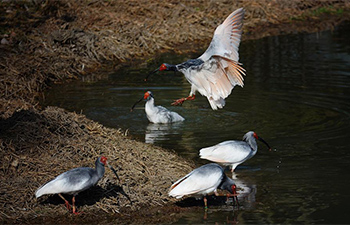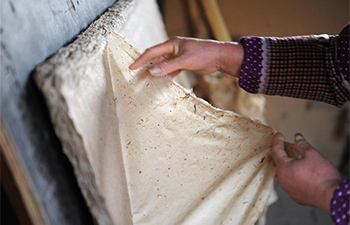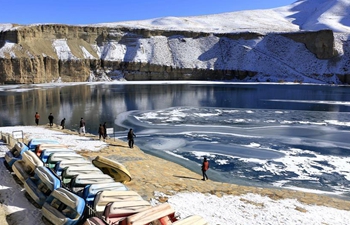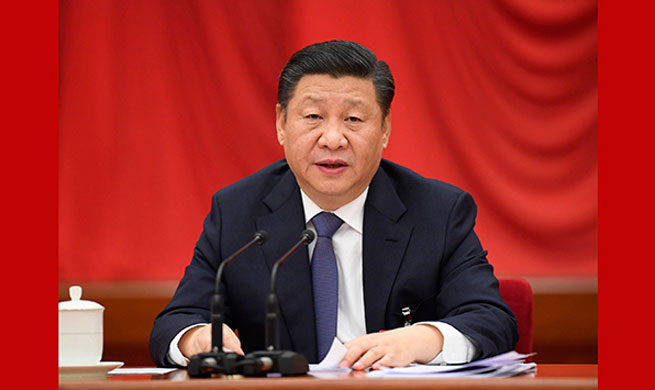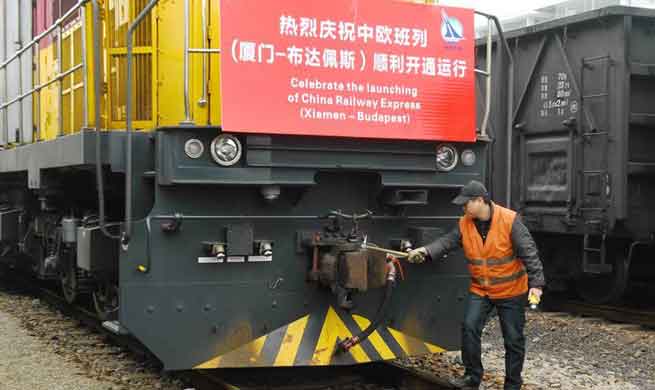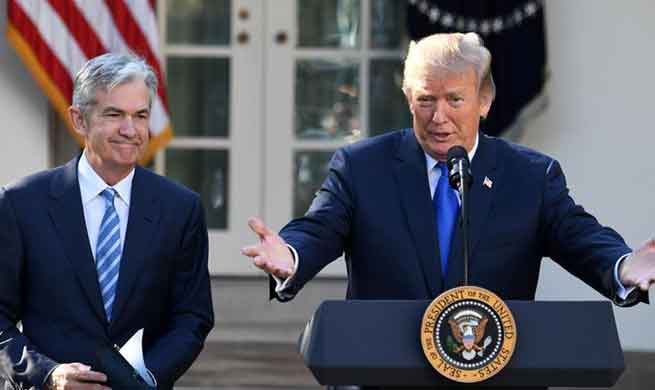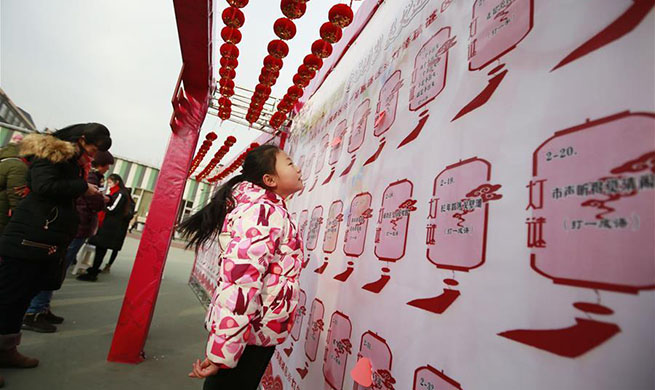DAMASCUS, Jan. 20 (Xinhua) -- Turkey began Saturday its military campaign against the U.S.-backed Kurdish fighters in the Afrin enclave in northern Syria, carrying out airstrikes to back the Ankara-supported Syrian rebels in their push to oust the Kurdish fighters from Afrin.
The Turkish military campaign, dubbed the "Olive Branch," started with airstrikes by Turkish F-16 warplanes, which struck positions of the Kurdish People's Protection Units (YPG) and their allies of the Syrian Democratic Forces (SDF).
Turkish President Recep Tayyip Erdogan announced on Saturday the military operation in Syria's Afrin has "actively" started.
The airstrikes and shelling killed six civilians and three Kurdish fighters, said the YPG, adding that they have no choice but to confront the Turkish attack against Kurdish-held Afrin enclave in the northern province of Aleppo province near the Turkish border.
In a statement, the YPG said the Turkish attack on Afrin opens the way for the return of the Islamic State (IS) group, which was largely defeated late last year by the SDF and the Syrian army. The YPG said it will retaliate and will defeat the attackers.
As Turkey will rely on the Ankara-backed Free Syrian Army (FSA) rebels in their push to eliminate the Kurdish fighters and control over Afrin, reports said that Turkish ground forces will also join the Afrin offensive on Sunday.
Meanwhile, the Manbij Military Council, which is affiliated with the SDF, said the Turkey-backed Free Syrian Army (FSA) rebels started an attack on Saturday against Kurdish groups in the countryside of Manbij in the northern countryside of Aleppo.
The FSA in the city of Mare in northern Aleppo also shelled the positions of the Kurdish-led groups in the Tal Rifat and Sad al-Shahba areas, which are under the control of the Kurdish forces.
Also, the Saudi-funded al-Hadath TV said tens of Turkish tanks crossed into Syria from Turkey's Kilis city.
Pan-Arab al-Mayadeen TV said tens of buses transported civilians from Afrin towards government-controlled areas in Aleppo province.
Afrin is home to 800,000 civilians, including displaced people who sought refuge in that area from earlier years of the nearly seven-year conflict.
Turkish Foreign Minister Mevlut Cavusoglu said his government has notified all actors involved about the attack, including the Syrian government, a claim denied by Damascus.
For its part, Russia said it has moved its troops out of Afrin, as the Russians held several posts there.
The operational group of the Russian Center for Reconciliation of Warring Parties in Syria and the military police in Afrin were relocated to the Tell-Adjar area within the Tell-Rifat de-escalation zone to avert possible provocations and dangers, the Russian Defense Ministry said in a statement.
"We call on the opposing sides to exercise mutual restraint," it said.
For its side, the Syrian government called the attack a "brutal aggression."
The "attack constitutes the latest step in the Turkish aggression on the Syrian sovereignty," the Syrian Foreign Ministry said.
The ministry denied Turkish claims that Ankara informed Damascus about the attack beforehand, saying the Turkish claims are part of a series of lies from the Turkish regime.
The battle of Afrin has been long anticipated, as Turkey made clear that it was going to unleash an offensive, along with the Ankara-backed Syrian rebels, against the YPG in Afrin.
Turkey deems the YPG as a terror group belonging to the Kurdistan Workers' Party (PKK).
Turkey's military operation in Afrin aims to deal a strong blow to the Kurdish fighters and weaken their growing influence in northern Syria near Turkey.
Ankara fears the separatist sentiment of Syria's Kurds could inspire Turkey's 14 million Kurds and pose threats to Turkey's southern border, where the PKK has been active for years.
The United States, which heavily backs the Kurdish forces and see them as reliable allies in Syria, has urged Turkey not to fight the Kurds in Afrin, saying the Turkish threats are destabilizing.
The Syrian government has previously warned it would shoot down any Turkish warplane fighting in Afrin.
Russian Foreign Minister Sergei Lavrov and U.S. Secretary of State Rex Tillerson discussed ensuring stability in northern Syria by phone Saturday after Turkey started bombing Kurdish forces in Afrin.
The Russian Foreign Ministry said Lavrov and Tillerson also discussed promoting a peaceful settlement of the Syrian conflict under the auspices of the UN, which should be facilitated by the Syrian National Dialogue Congress to be held in Russia's city of Sochi with broad participation.





